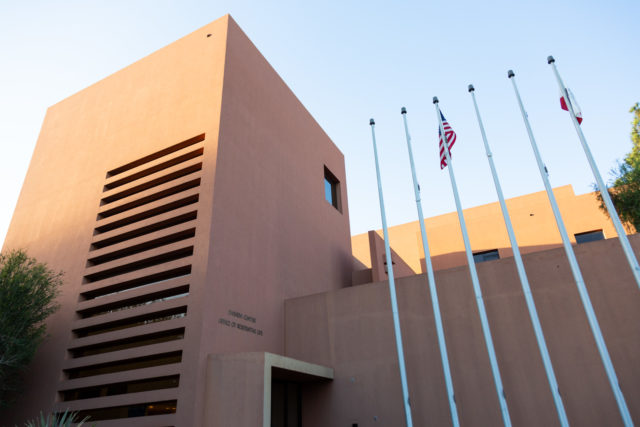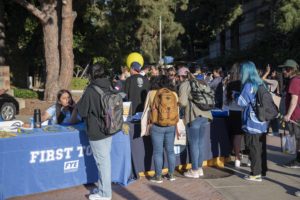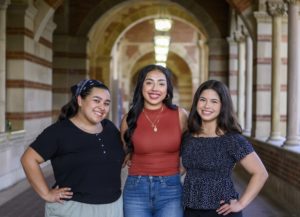The UCLA Study Abroad program hosted an informational study abroad event Nov. 13 for first-generation students in collaboration with First To Go.
The event, which took place in Tom Bradley International Hall from 6 p.m. to 7 p.m., aimed to inform first-generation students how they can study abroad through UCLA. The event included an informational presentation about studying abroad, tips on how to share plans with family and a student panel of recent participants.
In an emailed statement, a spokesperson for the UCLA Summer Sessions and International Education Office said the event intended to provide more information about the advantages of studying abroad.
“First Gen students need to know that studying abroad is an option for them too, especially in light of a more globalized market that influences all aspects of business and society,” the spokesperson said in the statement.
The spokesperson added that First To Go and Study Abroad’s partnership is important because both organizations seek to make opportunities more accessible to first-generation students by building awareness of the resources available to them. First To Go promotes the visibility and involvement of first-generation students in order to support their overall retention and success at UCLA.
First To Go also provides first-generation students with resources such as advising sessions, which helps students understand how studying abroad can work for their academic and post-academic careers and how the cost of participation can be managed.
Many first-generation students face concerns surrounding financial aid and family support when considering studying abroad.
Nicole Pablico, a second-year nursing student, said she attended the event to learn how to fund her study abroad experience. She added that after attending the event, she learned about different scholarship programs and now feels encouraged to apply for them.
Pablico also said she was worried about her parents’ understanding of the importance of studying abroad.
“My parents … think study abroad is just for fun,” Pablico said. “It is for fun, but academic-wise, I don’t think they understand it, so I just wanted to know more about how to finance the whole thing.”
Andrea Anaya, a third-year political science transfer student, said coming from an immigrant family with a single parent, she feels very close to her family and has grown up to be mindful of spending money, which may deter her from studying abroad. She added that she thought the presentation included helpful information for parents who may not be familiar with how college systems work.
Some first-generation students also face additional challenges when exploring studying abroad.
Andrea Gaitan, a third-year sociology transfer student, said that while her family would support her in studying abroad, the process for her to travel is more complicated because she is an undocumented student. She added that students who are undocumented also face concerns about their immigration status when crossing the border back into the United States.
Pablico said she wants to study abroad to expand her understanding of the world. She added that she believes experiencing something new would help her further her nursing education.
Pablico also said she believes studying abroad would give her the experience to meet more people, which can prepare her with the knowledge to support patients from different backgrounds.
“I want to basically learn everything so I can help everybody,” Pablico said. “Because you know, you can’t help other people if you have an empty cup yourself.”
Anaya also said she believes learning about other countries while abroad would be beneficial to studying political science because it would help expose her to a wider array of policies.
Anaya added that she especially appreciated the part of the presentation that addressed how to include family members in study abroad conversations. She said it helped her understand how to explain the importance of the program to her family.
Gaitan said she believes events like these help first-generation students by bringing awareness to the resources available to them so they have equal access to opportunities.
“It just teaches us that we do have the access to study abroad,” she said. “As first-generation students, we have the opportunity to do anything that any other student can do at UCLA.”






Comments are closed.